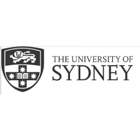Country risk is an emerging, interdisciplinary area of research with a variety of applications. It facilitates understanding of how societies’ economies, their financial systems and political apparatus interact to render an economy at risk for some form of crisis or regime change. Country risk is complex phenomenon with multiple facets, and is becoming increasingly important for financial market participants and government policy makers. Financial market participants, for instance, need indicators that signal the strength of the economy’s performance and resilience of its financial system, whereas policymakers need operational definitions of financial stability and resilience and methods of assessing them.
The country risk assessment specialisation fills an important lacuna by providing students with the current state of thinking and the art of evaluating the riskiness of country for an abrupt change in its economic, financial and political conditions and the associated social outcomes.
Understand and address the world’s most pressing challenges, including war and peace, social and economic justice, poverty, development and environmental sustainability. Investigate relations among states and non-state actors, including the evolution of the international system. Develop sophisticated critical thinking through this intellectually rigorous, research-intensive program.
The Master of International Relations allows you to specialise in Economics, Political Economy, Peace and Conflict Studies, Sociology, Social Policy and Development, or International Law. You will gain a deep understanding of complex problem solving in a globalised world.
The Department of Government and International Relations is one of the largest of its kind in Australia, with links to some of the major policy think tanks in Australia, such as the Australian Institute of International Affairs, and the Lowy Institute. We also house the Centre for International Security Studies and the Electoral Integrity project.
Our academics are recognised experts in international relations theory, public policy, international political economy and security, Australian and comparative politics, migration, and North and Southeast Asian politics.





